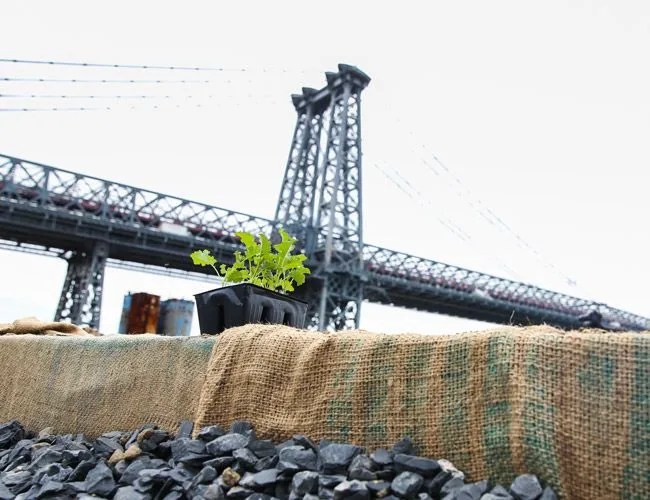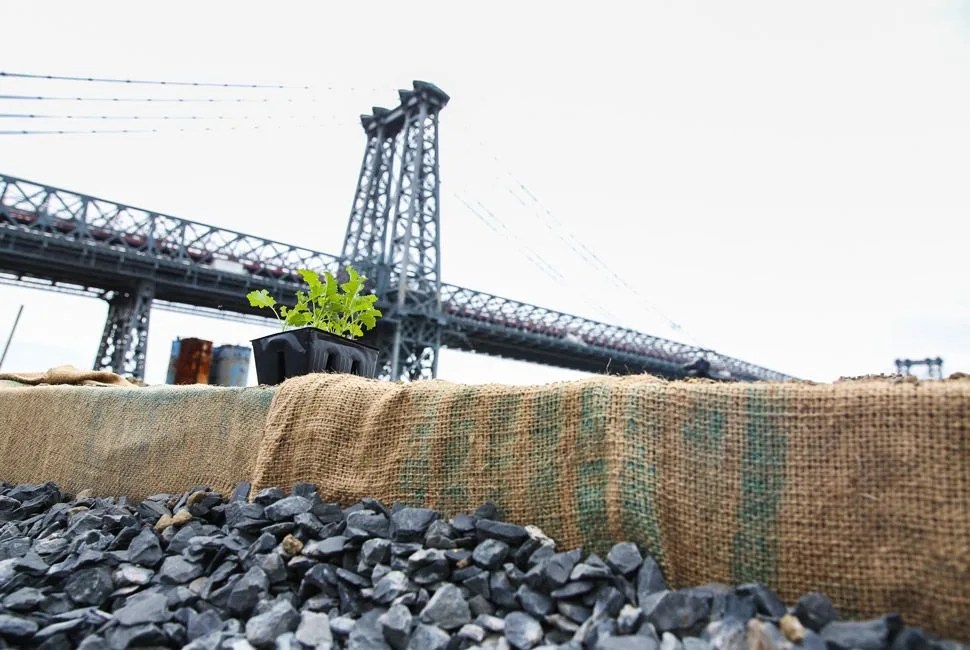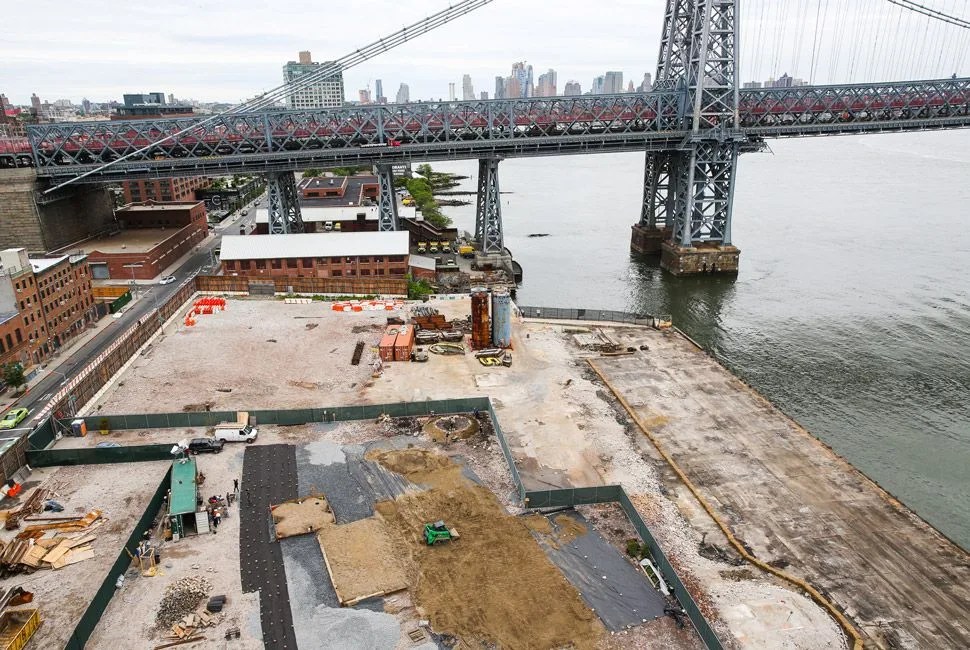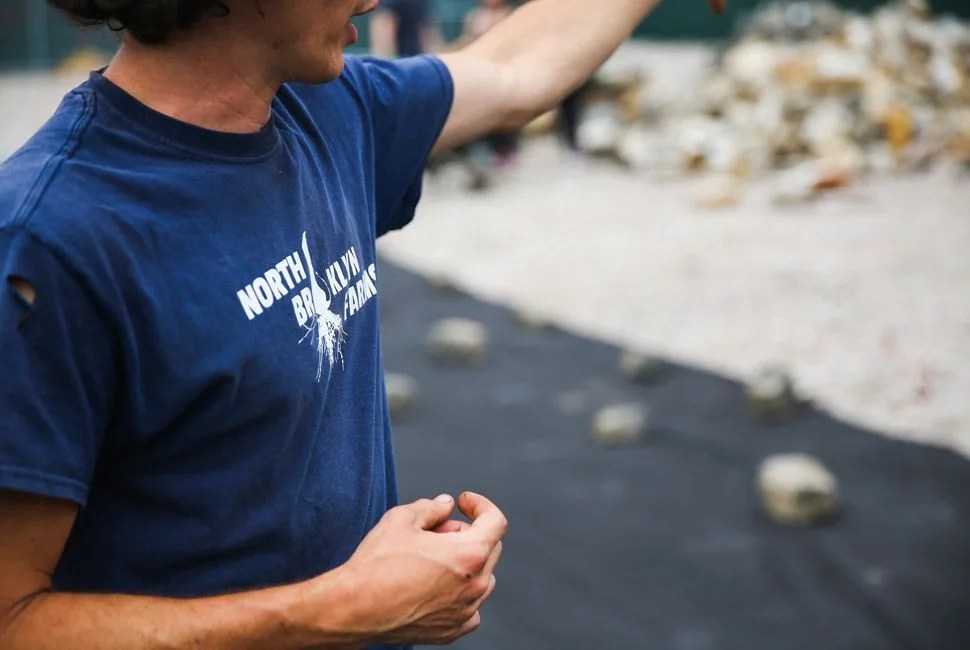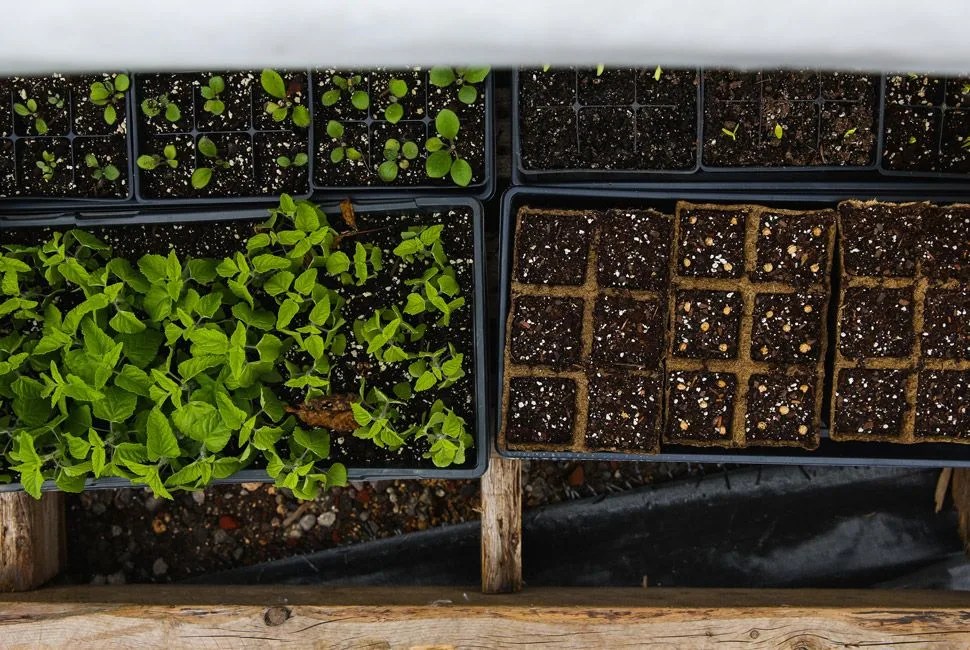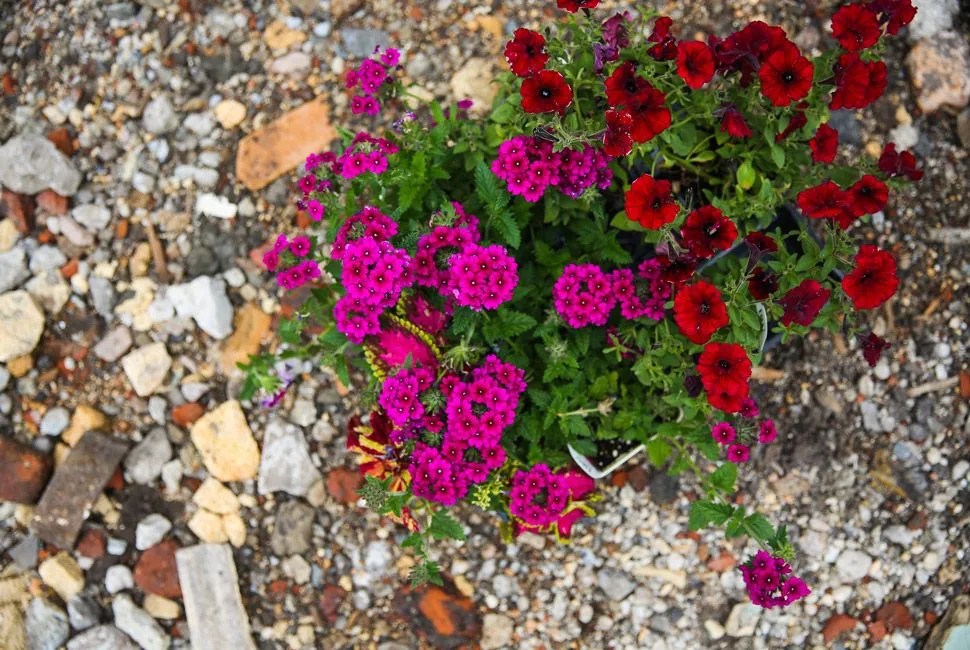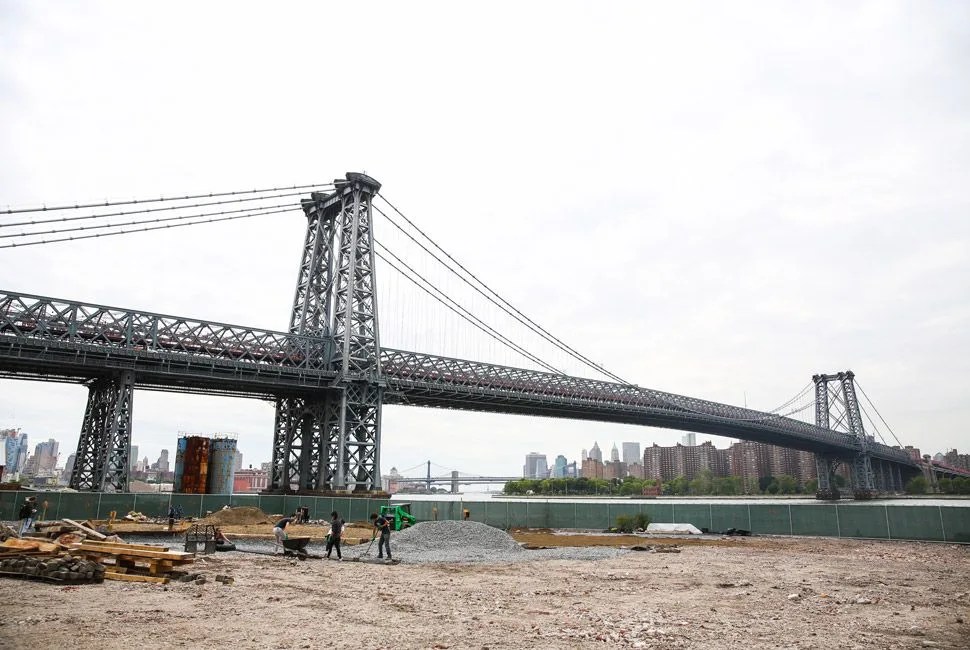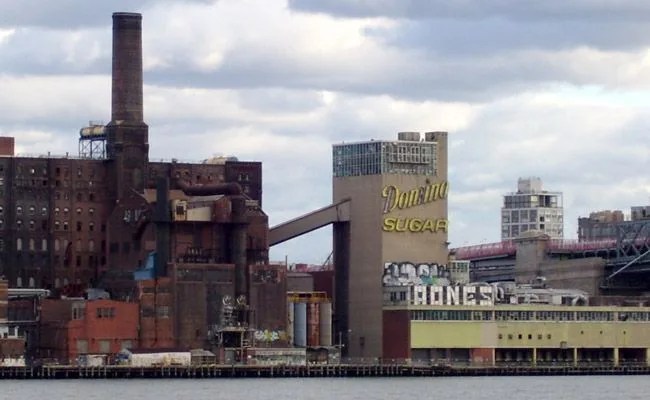6 photos
“When you’re growing anything in an urban environment, you have to be aware of heavy metals, hydrocarbon and all kinds of nasty things that live in the existing soil,” says Ryan Watson, cofounder of North Brooklyn Farms (NBk Farms). It’s a fact that he and fellow cofounder Henry Sweets know better than most. Together, they’re in the middle of building an urban green space in the rubble that was once Williamsburg’s Domino Sugar refinery.

Located in Brooklyn, in the shadow of the Williamsburg Bridge, the old Domino Sugar factory was built in the mid-19th century and once produced about half the sugar consumed in the US. But it’s been abandoned since 2004. In cooperation with the property developer Two Trees, NBk Farms is building an urban green space that’ll fit in an area slightly smaller than one square acre, which, according to Sweets, is just a fraction of Domino’s eight-acre property. Different from a community garden, the urban green space (when operational) will sell organic and sustainable produce at pick-your-own farm stands, supper clubs (which Sweets says will be their biggest revenue generator) and other sponsored events that’ll take place at the farm. They’ll also sell other plants and flowers.
“We are using agriculture to create green space to take unused space and turn it into something for people to use.”
Their goal is to create an active park that engages people, as opposed to being something passive like most city-run parks. Community members will be able to volunteer in the garden. Local schools will use that farm as an educational space. And, as this was once a desolate lot of rubble, the farm will provide a verdant community park where people can walk and relax outdoors. (There will also be a bike path adjacent to the farm, which is being constructed by an organization separate from NBk Farms).
“We are using agriculture to create green space,” says Sweets, “to take unused space and turn it into something for people to use.” He and Watson also plan to work with farms in Upstate New York and get them to help supply some extra produce down in Williamsburg. After all, only so much can be grown in a lot that spans less than an acre.
